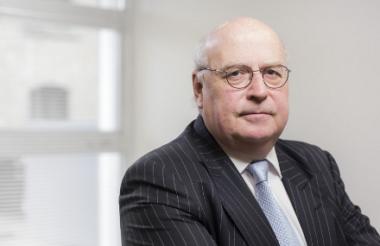The Oversight Trust has been criticised for appointing Sir Stuart Etherington as chair due to his past record on social investment.
Experts have raised concerns about the recruitment process and Etherington's suitability for the role. One told Civil Society News that Etherington, and other charity leaders, were “asleep at the wheel” when they should have been working with social investors to improve the way that funding was delivered.
Earlier this week, The Oversight Trust – Assets for Common Good, which the new name for the Big Society Trust and which oversees the work of Big Society Capital and other social investment players, announced that the former NCVO chief executive is its new chair.
David Floyd, who has published and lectured on the social investment market, said that Etherington “had his chance and he blew it”.
Questions about the appointment have also been raised by Amir Rizwan, co-chair of the Diversity Forum.
The establishment
Floyd told Civil Society News that the decision represented “an establishment appointment”.
Referring to the years between 2011 and 2015, when the coalition government was promoting the idea of the Big Society and the role of social investment, Floyd said: “During that period, voluntary sector umbrella bodies, especially the main ones, NCVO, ACEVO and so on, were really asleep at the wheel in terms of social investment.
“When the actual products of social investment actually came out, and the initial offer from Big Society Capital and the market was not useful to the vast majority of the organisations they claimed to represent, their response was uncoordinated howls of pain.”
Floyd added: “Sir Stuart happened to be at the head of that at the time, which makes it [him being chair] a very inappropriate role because he had his chance and he blew it.”
Communication
Floyd argued that Etherington and other sector leaders from the time did not do enough to connect charities with potential investors, or provide practical advice to help voluntary organisations.
He said: “An effective charity leadership establishment should have been able to channel the practical concerns and experiences of its members into a picture of what the need was, and then communicate that effectively to the social investment sector.
“Then, if the social investment sector didn’t respond to that – as certainly in the old days it didn’t – [it needed to] really come out publicly and quickly and say, ‘This is what is going wrong, this is what needs to be different.’”
Diversity concerns
Meanwhile, Amir Rizwan, speaking as co-chair of the Diversity Forum, said that the appointment helped highlight “a systematic problem in the sector as a whole”.
Rizwan, who stressed that his concerns were focused on wider diversity issues in the social investment sector rather than Etherington’s appointment, said of the BST board: “To be quite blunt, I just see six or seven white people on the page. When I see that I think: How did they end up here? Was looking at diversity even part of their decision making?”
He added: “I am worried that if boards don’t have representative, diverse experience, how can we be confident that money will flow where it most needed, to groups who might not normally get support, who aren’t the normal suspects?”
He said that he hopes the Diversity Forum will have the chance to work with BST on this and other issues in the future.
Recruitment process
In response, The Oversight Trust said that the recruitment process was run by the specialist firm Green Park. The role was advertised in the Sunday Times and all the information was available on a microsite online.
Some 131 people were contacted about the position, there were 21 applications for the role, and seven people were shortlisted for interview. Three were then interviewed.
A spokesperson said: “This process and these numbers are in line with what we would expect to see in a senior-level search, where the focus is on finding properly-qualified candidates not just bringing in numbers of people who will then need to be stood down.
“This was a highly specialised role, which appealed to people who understand the upstream nature of the Trust, but was not so attractive to those who want to make a difference nearer the front line.”
Sir Stuart Etherington was chief executive at NCVO for 25 years before retiring last year. In 2010 he outlined his views on social investment in a piece for Civil Society News. He declined to comment for this article.
Related articles











